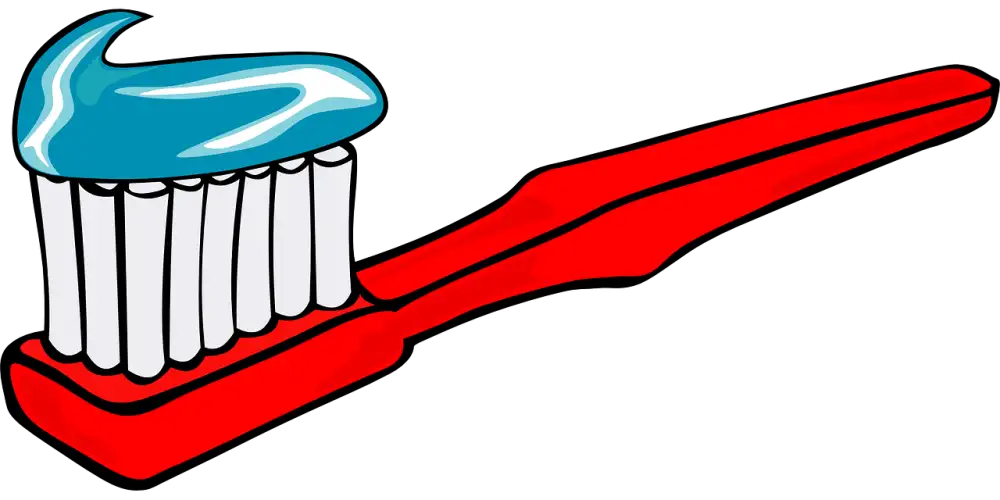Enhancing Oral Care: Discover the Best Toothbrushes for Disabled Adults

- Importance of oral hygiene for disabled adults
- Challenges faced by disabled adults in maintaining oral health
- Features to consider when choosing toothbrushes for disabled adults
- Manual toothbrush options for disabled adults
- Electric toothbrush options for disabled adults
- Benefits of using specialized toothbrushes for disabled adults
- Tips for caregivers in assisting disabled adults with toothbrushing
Maintaining good oral hygiene is important for everyone, including disabled adults. However, due to physical limitations or cognitive impairments, they may face challenges in effectively cleaning their teeth. This is where specialized toothbrushes designed specifically for disabled adults come into play. These toothbrushes are equipped with features that make oral care easier and more accessible for individuals with disabilities. In this article, we will explore the importance of oral hygiene for disabled adults, the challenges they face, and the best toothbrush options available to enhance their oral care routine.
Importance of oral hygiene for disabled adults
Maintaining good oral hygiene is crucial for everyone, including disabled adults. Oral health plays a significant role in overall well-being and quality of life. Poor oral hygiene can lead to various dental problems such as gum disease, tooth decay, and bad breath. For disabled adults, who may already face numerous challenges in their daily lives, it becomes even more important to prioritize oral care. Neglecting oral hygiene can not only cause physical discomfort but also impact their self-esteem and social interactions. Therefore, it is vital to raise awareness about the importance of oral hygiene and provide suitable toothbrush options for disabled adults to enhance their overall health and well-being.
Challenges faced by disabled adults in maintaining oral health
Disabled adults face various challenges in maintaining oral health. Limited mobility or dexterity can make it difficult for them to properly brush their teeth, leading to plaque buildup and gum disease. Some disabilities may also affect their ability to hold a toothbrush or manipulate it effectively. Additionally, sensory issues or cognitive impairments can make it challenging for disabled adults to understand the importance of oral hygiene or follow a consistent brushing routine. These challenges highlight the need for specialized toothbrushes that cater to their unique needs and abilities.
Features to consider when choosing toothbrushes for disabled adults
When choosing toothbrushes for disabled adults, there are several important features to consider. Firstly, the handle should be easy to grip and maneuver, as individuals with limited dexterity may struggle with traditional handles. Look for toothbrushes with ergonomic designs or those that have larger, textured handles for better control.
Secondly, the bristles should be soft and gentle to avoid causing any discomfort or irritation. Disabled adults may have sensitive gums or oral health conditions that require extra care. Additionally, consider toothbrushes with angled heads or flexible necks to reach all areas of the mouth effectively.
Furthermore, it is crucial to choose a toothbrush with a suitable size and shape. Some disabled adults may have difficulty opening their mouths wide or have limited jaw movement. Opt for toothbrushes with smaller heads that can easily access hard-to-reach areas without causing discomfort.
Lastly, consider the weight of the toothbrush. Lightweight options are preferable for individuals who may struggle with holding heavier objects due to physical limitations.
By considering these features when choosing toothbrushes for disabled adults, you can ensure that oral hygiene is maintained effectively while accommodating their specific needs and challenges.
Manual toothbrush options for disabled adults
When it comes to manual toothbrush options for disabled adults, there are a few key features to consider. Firstly, the handle should be easy to grip and maneuver, with a comfortable grip that allows for better control. Some toothbrushes even have larger handles or built-in grips specifically designed for individuals with limited dexterity.
Additionally, the bristles of the toothbrush should be soft and gentle on the gums to avoid any discomfort or irritation. Look for toothbrushes with rounded bristle tips to ensure a thorough yet gentle cleaning experience.
Another important consideration is the size and shape of the toothbrush head. A smaller head can make it easier to reach all areas of the mouth, especially for those with limited jaw movement or difficulty opening their mouths wide.
Some manual toothbrushes also come with innovative features such as angled bristles or flexible necks, which can help reach difficult-to-access areas more effectively.
Ultimately, choosing a manual toothbrush that suits the specific needs and abilities of the individual is crucial in promoting good oral hygiene for disabled adults.
Electric toothbrush options for disabled adults
Electric toothbrushes can be a great option for disabled adults who may have difficulty using a manual toothbrush. These toothbrushes are designed to do most of the work for the user, making it easier to maintain good oral hygiene.
There are several electric toothbrush options available that cater specifically to the needs of disabled adults. Some models have larger handles, making them easier to grip and maneuver. Others have built-in timers or sensors that indicate when the recommended brushing time has been reached or when too much pressure is being applied.
Additionally, there are electric toothbrushes with specialized brush heads that are designed to clean hard-to-reach areas more effectively. These brush heads may have smaller bristles or angled designs that can reach between teeth and along the gumline.
Some electric toothbrushes also come with features like different brushing modes (such as sensitive or massage mode) that can cater to specific oral health needs. This can be particularly beneficial for disabled adults who may have sensitive gums or other dental issues.
When choosing an electric toothbrush for a disabled adult, it is important to consider their specific needs and abilities. It may be helpful to consult with a dentist or oral healthcare professional who can provide guidance on selecting the most suitable option.
Overall, electric toothbrushes offer convenience and ease of use for disabled adults, helping them maintain optimal oral health without putting excessive strain on their dexterity or motor skills.
Benefits of using specialized toothbrushes for disabled adults
Using specialized toothbrushes can provide numerous benefits for disabled adults in maintaining their oral health. These toothbrushes are specifically designed to cater to the unique needs and challenges faced by individuals with disabilities. One major advantage is that they offer improved accessibility and ease of use. Specialized toothbrushes often have ergonomic handles that are easier to grip, making it more comfortable for individuals with limited dexterity or mobility to maneuver the brush effectively. Additionally, these toothbrushes may have modified bristle patterns or sizes, which can help clean hard-to-reach areas or accommodate sensitive gums. Some specialized toothbrushes also feature built-in timers or vibrating functions, which can assist individuals with cognitive impairments in maintaining proper brushing time and technique. Overall, using specialized toothbrushes can enhance oral care for disabled adults, promoting better oral hygiene and reducing the risk of dental problems.
Tips for caregivers in assisting disabled adults with toothbrushing
1. Communication: Talk to the disabled adult beforehand and explain the importance of oral hygiene. Use simple language and be patient.
2. Adapt the environment: Create a comfortable and accessible space for toothbrushing. Adjust the height of the sink or use a chair if needed.
3. Choose the right toothbrush: Select a toothbrush with a handle that is easy to grip and maneuver. Consider using an electric toothbrush for better control.
4. Assistive devices: If necessary, use assistive devices like mouth props or dental floss holders to make brushing easier.
5. Gentle technique: Use gentle, circular motions while brushing to prevent discomfort or injury. Pay extra attention to areas prone to plaque buildup.
6. Time management: Ensure sufficient time for thorough brushing without rushing through the process. Encourage the disabled adult to brush their teeth twice a day.
7. Positive reinforcement: Praise and reward the disabled adult for their efforts during toothbrushing sessions, providing motivation and encouragement.
8. Regular dental visits: Schedule regular dental check-ups to monitor oral health and address any issues promptly.
Remember, patience, understanding, and empathy are key when assisting disabled adults with their oral care routine
In conclusion, promoting oral health for disabled adults is crucial in maintaining overall well-being. Suitable toothbrushes play a vital role in ensuring effective oral care for this population. By considering the specific needs and challenges faced by disabled adults, such as limited dexterity or mobility, caregivers can choose the right toothbrushes to enhance their oral hygiene routine. Whether it's a manual or electric option, specialized toothbrushes offer numerous benefits, including improved plaque removal and easier handling. With proper assistance from caregivers, disabled adults can achieve optimal oral health and enjoy the benefits of a healthy smile.
Published: 24. 01. 2024
Category: Health



